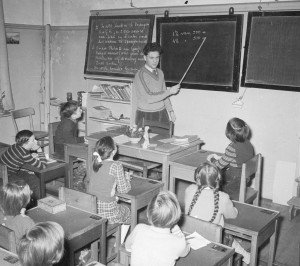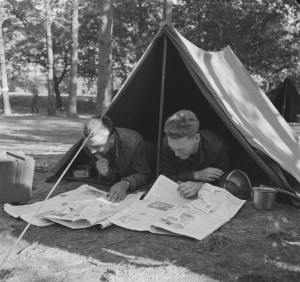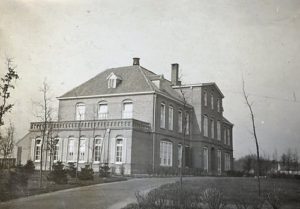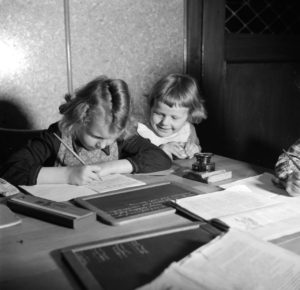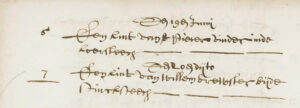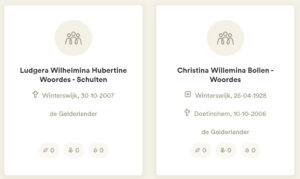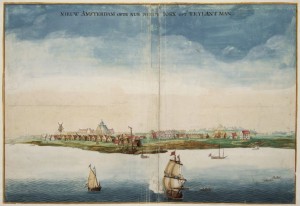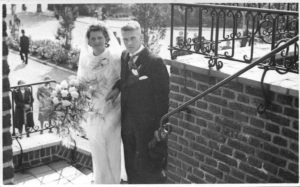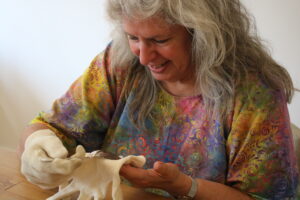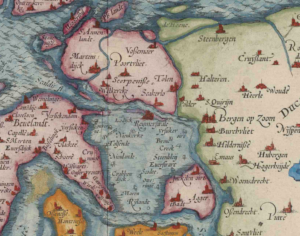Try finding out what higher authorities may have created records about your ancestors. A few examples: If you are researching in a specific municipality, check the records of the province to see what records they received from that municipality. If you find a court case, find out what the appellate court was to see if there was an appeal. If your ancestor worked for a school, find out who appointed the teachers. Until recent times, this typically was either the church or the … [Read more...]
Quick tip – Newspapers as gateway to other records
Newspapers sometimes announced important events in our ancestors' lives. Knowing that an event took place can lead you to other records. Examples: A family announcement may lead you to birth, marriage, or death records. An announcement of a public auction of real or personal goods may alert you to possible notarial records. A call for creditors to come forward may alert you to a bankruptcy. A notice by a company that someone is no longer their agent may alert you to company … [Read more...]
Quick tip – Follow up on unusual death places
If your ancestors died in a place where they did not live, there could be a story there. Perhaps they were committed to a mental hospital, like Thomas Cammenga or Gerrit Jan van Nijkerken. Perhaps they met with an accident, like Adriaan Marijnissen. Perhaps they were in jail, or visiting relatives. You can check the links articles for examples of how you can approach such research. … [Read more...]
Quick tip – Spelling variations
In the past, there was no concept of official spelling. Do not rule out that a record is for your person just because their name is not spelled the way you think it should have been. In the Netherlands, spelling of surnames should have been fixed since 1811, but errors occurred even later. We tend to think of the written word as the canonical version, but in the past it was the spoken word. The written version was just a derivative. And don't forget that many of our ancestors were illiterate … [Read more...]
Quick tip – Burials under name of husband or father
Many burial registers and related registers like burial fees registers recorded entries under the name of the head of household. Entries might be for the wife of Jan Claesz, or the child of Pieter Willems. If you cannot find a married woman in a burial register, check under her husband's name. If you cannot find an unmarried person, such as a minor child, in a burial register, check under their father's name. … [Read more...]
Quick tip – Mensenlinq
Mensenlinq is a website where many current newspapers publish their family announcements. It is a good place to find the recently deceased. It can be difficult to find recent deaths since death records are not public for 50 years and recent newspapers are not published online due to copyrights. Mensenlinq allows you to search for the announcements that families placed in newspapers. See the source Family Announcements for more information about this source. By default, Mensenlinq only … [Read more...]
Quick tip – Identical place names in New and Old Netherland
If you are doing in New Netherland, the Dutch colony in what later became New York and the surrounding area, you may come across place names that exist in both the (old) Netherlands and New Netherland. When you come across a place in records and you cannot find the person in the records of that town, consider that perhaps the other place is meant. For example, a New Amsterdam marriage record may refer to a bride from "Vlissingen" without specifying whether that is the town on Long Island or the … [Read more...]
Quick tip – No marriage license or bond
In the Netherlands, there are no marriage licenses or marriage bonds like you may be familiar with in other countries. The only way to get married was to have banns read, typically for three consecutive weeks. That gave others the opportunity to raise objections, for example if one of the parties was promised to another, or if the couple was too closely related. In extraordinary circumstances, you may find dispensations to have the banns read all on the same day, but that is extremely rare. … [Read more...]
Quick tip – Friesland memorabilia
Hessel de Walle created a wonderful website with texts of graves in churches, mourning signs, stones with names, silverware, signet rings, etc in Friesland. In many cases, this includes a photo of the object. The website has the following search options: Gemeente: Municipality Plaats: Town Typen: Types. Achternaam: Last name Voornaam: First name Patronymicum: Patronymic Beroep: Occupation Foto: Photo Portretzerk: Grave portrait Latijn gebruikt: Latin … [Read more...]
Quick tip – Drowned Places
The Netherlands is located in the delta of several of Europe's major rivers, including the Rhine, the Scheldt, and the Meuse. Over time, more than a hundred villages and cities in the Netherlands were lost to water. In a few cases, catastrophic floods washed away a whole town, like during the St. Elisabeth Flood of 1421. In other cases, repeated smaller floods caused people to abandon a place. This happened in West-Vlieland and Reimerswaal, for example. It could also be that the townsfolk … [Read more...]
